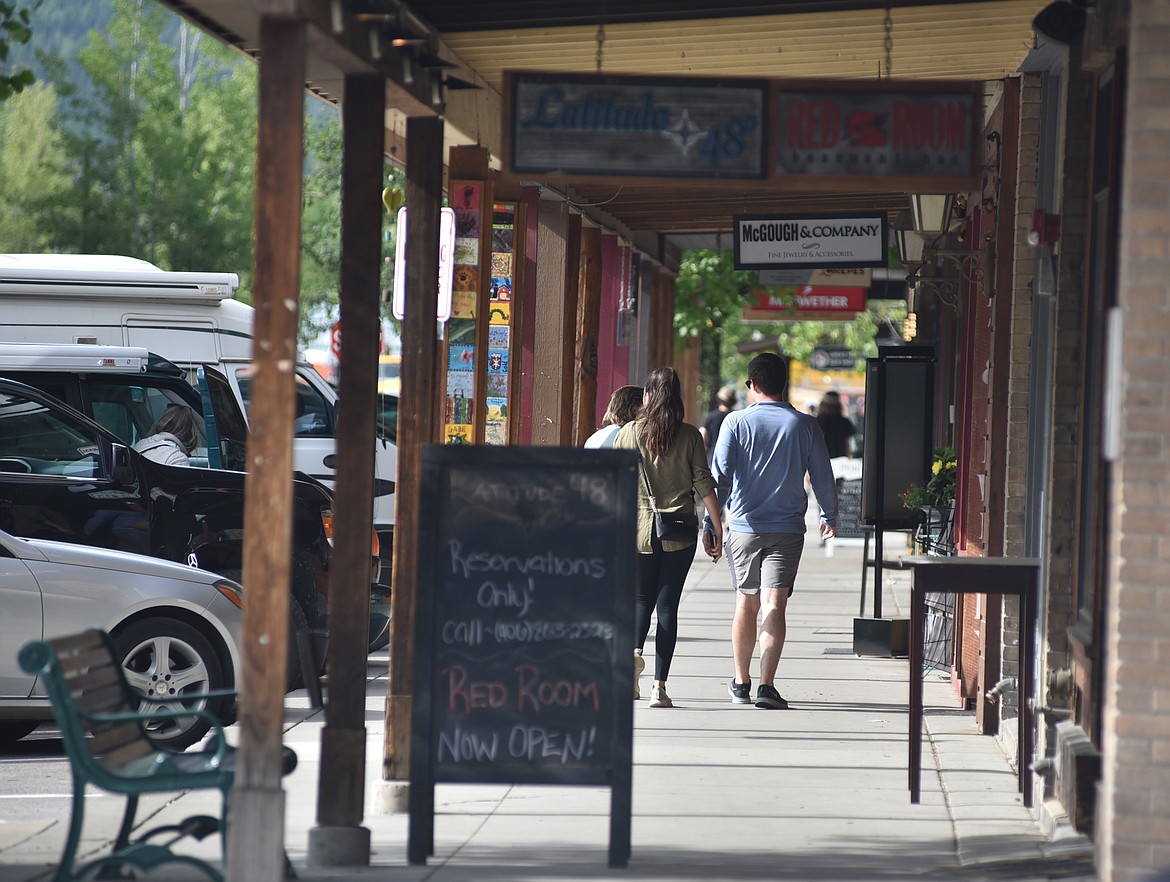City records dip in resort tax collections
Resort tax collections for the city took a hit during the most recent fiscal year, which ended in June. Whitefish collected $4.1 million in taxes compared with the previous year’s total of $4.2 million.
In fiscal year 2020, which ran from July 2019 through June 2020, resort tax collections decreased 3.8% or about $162,700.
City Manager Dana Smith said the city had been anticipating resort tax collections would decrease from the prior year due to the COVID-19 pandemic, but collections for the last three months actually exceeded expectations.
Whitefish’s resort tax is 3% collected on retail sales, lodging, at restaurants and for prepared food and alcoholic beverages.
Resort tax collections decreased in February, March, April, May and June this year compared with the same months in 2019.
Smith said with delinquent payments collected for prior periods and outstanding payments unknown, the amount collected in the months may not be completely reflective of actual impacts to local businesses during those months.
“However, it can give you a sense of the impacts by business type,” she said. “Lodging has taken the brunt of the economic hit from the pandemic, but that is closely followed by bars and restaurants. Retail, however, has seen an increase during May and June.”
For lodging, collections in FY20 totaled abut $858,000 compared to $965,000 in FY19. For bars and restaurants, the FY20 total was $1.49 million, while in FY19 it was $1.6 million.
Retail collections increased to $1.7 million in FY20 from $1.6 million in FY19.
Montana Gov. Steve Bullock declared a state of emergency on March 12 related to the COVID-19 pandemic one day after a part-time resident of the state tested positive for the virus. Then on March 13 four additional positive tests were confirmed in the state.
Bullock issued a stay at home order that went into effect on March 28 and was lifted on April 26.
The state on June 1 moved into phase two of reopening allowing for increased operations at businesses and a 14-day travel quarantine for travel into the state was also lifted on June 1.
The City of Whitefish in April implemented an emergency ordinance restricting stays at lodging facilities that was lifted on June 1.
One of the largest drivers of tourism in the winter, Whitefish Mountain Resort closed early for the season on March 15 due to the pandemic.
A survey of Whitefish business owners by the Whitefish Convention and Visitors Bureau and the Whitefish Chamber of Commerce found that businesses were losing about $732,000 per day in March compared to last year when the stay at home order was in place.
Funds from the resort tax go to three main areas — 25% goes to a property tax reduction for taxpayers in the city, 65% goes to the repair and improvement of streets, storm sewers and sidewalks, and 5% goes to funds for bicycle paths and other park capital improvements. In addition, revenue from the resort tax is used to fund the purchase of the Haskill Basin Conservation Easement to protect the city’s drinking water source.
Smith said collections for FY19 were adequate to cover the payments for the Haskill Basin conservation easement and a loan wasn’t necessary from the water fund for the payment.
The city has budgeted for this to be the case in FY21, but Smith notes that it could change if there is significant closures of businesses or travel restrictions again.
The months of July, August and September are typically the highest for resort tax collections.
Whitefish’s resort tax was first approved by city voters in 1995 and was implemented in February 1996. In November 2004, voters approved an extension of the tax for an additional 20 years through January 2025.
In April 2015 voters approved increasing the resort tax rate from 2% to 3% to cover the cost of acquiring the Haskill Basin Conservation Easement. The 1% only provides funds for property tax relief and payment for the easement.
Since its inception in 1996 through June 2020, the resort tax has allowed for $12.49 million in property tax relief, $23.6 million has been spent on street improvements and $1.6 million has been spent on park improvements.


